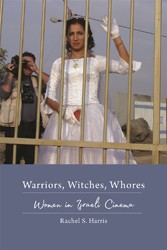This comprehensive and systematic study of recent Mizrahi cinema in Israel explores the manner in which contemporary Mizrahi cinematographers have confronted the long-standing biases and discrimination directed against Mizrahi Jews on the part of the early Zionist oriented settlers. Shemer describes how, since their arrival at the beginning of the 1950s, the Mizrahi (Oriental-Jewish or Arab-Jewish) Jews have been subjected to a persistent attitude wherein they have been viewed as an “inferior other.” Their “Levantine” cultural expressions have been seen as threats to the “national Zionist enterprise” which was grounded in Western culture. The general attitude maintained by the dominant leadership had been directed at marginalizing or even sublimating the cultural expressions and identity of the Mizrahi Jews in what has come to be described as the Israeli “melting pot.”
As author Shemer makes clear in this book, creators of Mizrahi cinema in Israel have begun to react against these attitudes, striving earnestly to re-assert and to promote Mizrahi culture in their creations. Overcoming a half century of humiliation, Mizrahi cinema has begun to challenge the prevailing national story in a new scenario in which filmmakers are striving to reclaim their parents’ Arab-Jewish culture. However, their construction of the past encounters barriers in the form of language and Arab hostility.
In addition, Shemer’s work examines how the Mizrahi cinematic response to the dominant culture has been instrumental in fashioning an original place in Israeli cinema that defies the status quo and provides a controversial new space that gives voice to an otherwise constrained majority.
This book is a must not only for those fascinated with the study of contemporary Israeli cinema, but also those exploring the sociological and ethnological implications of the conflict between the early Zionist settlers and the later Mizrahi arrivals who have recently begun to make their voices known in Israeli society, both on and off the screen. Text is accompanied by appendices which include Israeli films cited in the book, interviews conducted by the author, a bibliography, and index.




